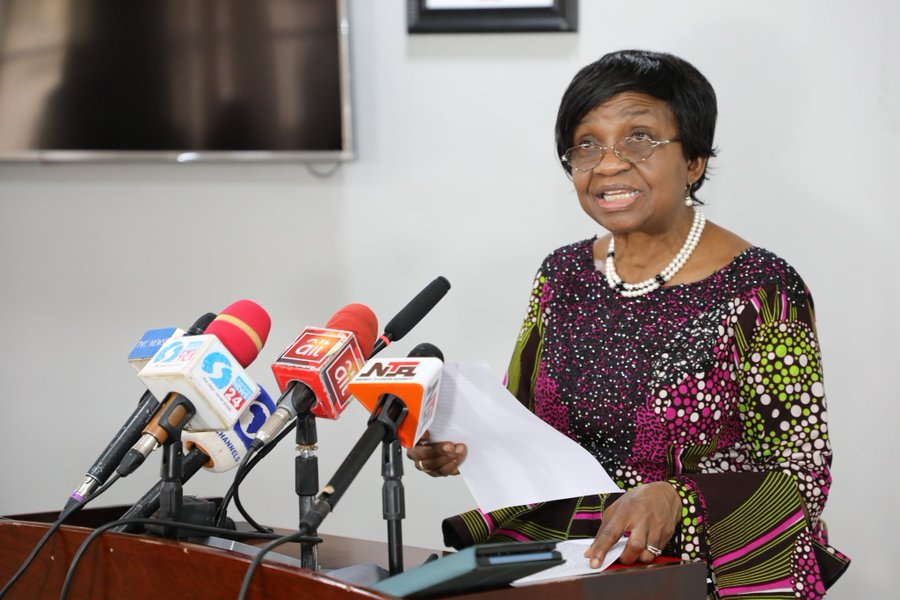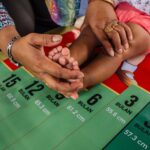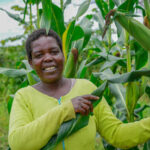In the late 1980s, a glut of adulterated drugs flooded drugstores across Nigeria. On public buses, charlatans peddled counterfeit formulations promising lasting cures for an array of ailments.
An error in a paracetamol syrup led to the death of more than 150 children in 1989, leading countries like Ghana and Sierra Leone to ban Nigerian-made drugs.
The tragic toll of events during this time gave rise to the National Agency for Food and Drug Administration and Control (NAFDAC) in 1994, tasked with restoring safety and integrity to Nigeria’s food and health products.
Under the aegis of charismatic leaders, NAFDAC conducted awareness campaigns, dismantled illegal drug markets and tightened control on drug imports. By the mid-2010s, the share of counterfeit medicines had dropped to 3.6%, from an estimated 16.7% in 2005.
Three decades after its birth, the agency’s persistence has paid off in a different way. Nigeria has now become the first African country to sustain the World Health Organisation’s Maturity Level 3 status for the regulation of medicines and vaccines, effective from June 30, 2025.
This recognition is proof that Nigeria’s regulatory systems meet the essential benchmarks for quality, safety, and consistency.
WHO’s benchmarking mission in late 2024, followed by months of follow-up reviews, assessed nine core regulatory functions. All critical recommendations from the previous audit were fully addressed.
The evaluation examined over 260 sub-indicators and tracked the closure of more than 800 recommendations, confirming that NAFDAC operates a stable, integrated system in partnership with the Pharmacy Council of Nigeria.
This coup also places Nigeria above others on the African continent. In July 2025, the first meeting of African Maturity Level 3 regulators was hosted in Abuja.
Regulatory bodies from seven African countries, including Ghana and South Africa, established a pact to harmonise standards and share resources across borders. This ML3 Reliance mechanism would accelerate the timeline for vetting drugs and streamline the process for countries with fewer resources.
The Bola Tinubu administration has taken credit for this milestone, linking it to the government’s broader ambitions for universal health coverage and greater self-reliance in medical production. His endorsement signals a political will to push Nigeria toward Maturity Level 4 and full WHO-Listed Authority recognition in the near future.
Beyond the global honour, the sustained ML3 status reinforces public trust, drawing investment into the pharmaceutical sector to foster job creation across multiple health sectors, including manufacturing, quality testing and distribution.
It also reassures global partners that Nigerian-approved medicines meet internationally recognised safety standards.
This milestone comes at a time when nearly one-third of African countries still lack basic regulatory capacity. Nigeria’s consistency sends a message that rigorous oversight is possible on the continent, even in complex markets with large populations and challenging supply chains.
It is also a reminder of how far the country has come. From a period when fake drugs claimed hundreds of lives and hurt the nation’s reputation, Nigeria now stands as an example of how determined reform, institutional resilience and cross-border collaboration can reshape a public-health system.
In the late 1980s, Nigeria faced a crisis of counterfeit drugs, culminating in a tragic incident in 1989 where adulterated paracetamol syrup led to over 150 child fatalities. This resulted in the formation of the National Agency for Food and Drug Administration and Control (NAFDAC) in 1994, which worked to restore the safety and credibility of Nigerian food and health products. Through awareness campaigns and stricter regulations, NAFDAC significantly reduced counterfeit medicines from 16.7% in 2005 to 3.6% in the mid-2010s.
In 2025, Nigeria achieved the distinction of being the first African country to sustain WHO's Maturity Level 3 status, indicating its regulatory systems meet essential benchmarks for medicine and vaccine safety. This achievement led to a significant meeting in Abuja, where regulators from various African countries agreed to harmonize standards, potentially streamlining drug vetting processes across the continent.
The Nigerian government credits this advancement to enhancing universal health coverage and aims for further improvements toward full WHO-Listed Authority recognition. This accomplishment has bolstered public trust, encouraged investments in the pharmaceutical sector, and reassured global partners of Nigeria’s commitment to international safety standards, illustrating the country’s progress in overcoming past challenges of counterfeit drugs with determined reform and collaborative efforts.






